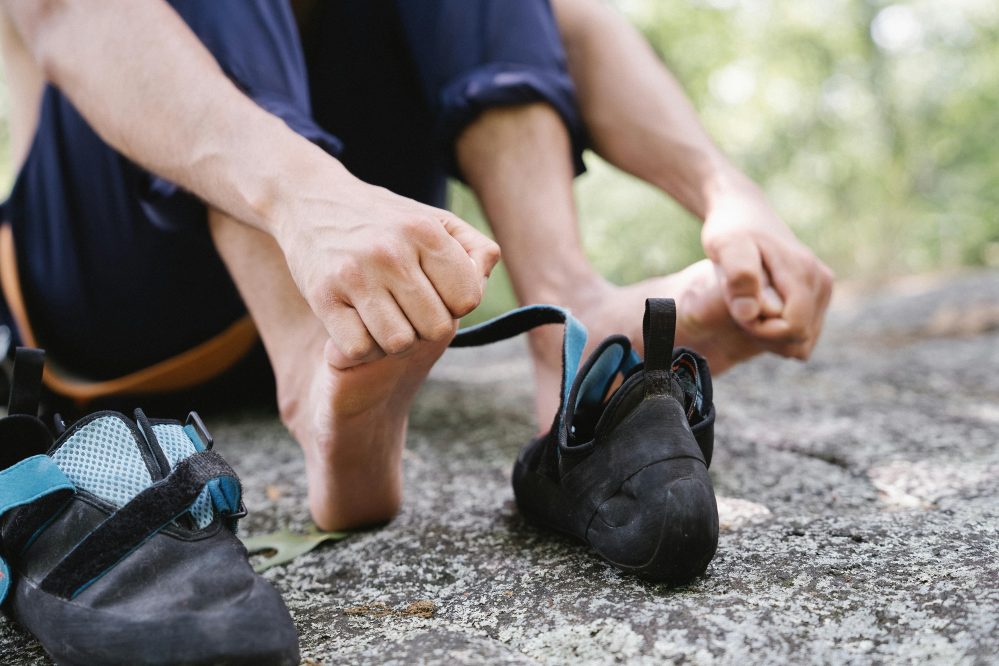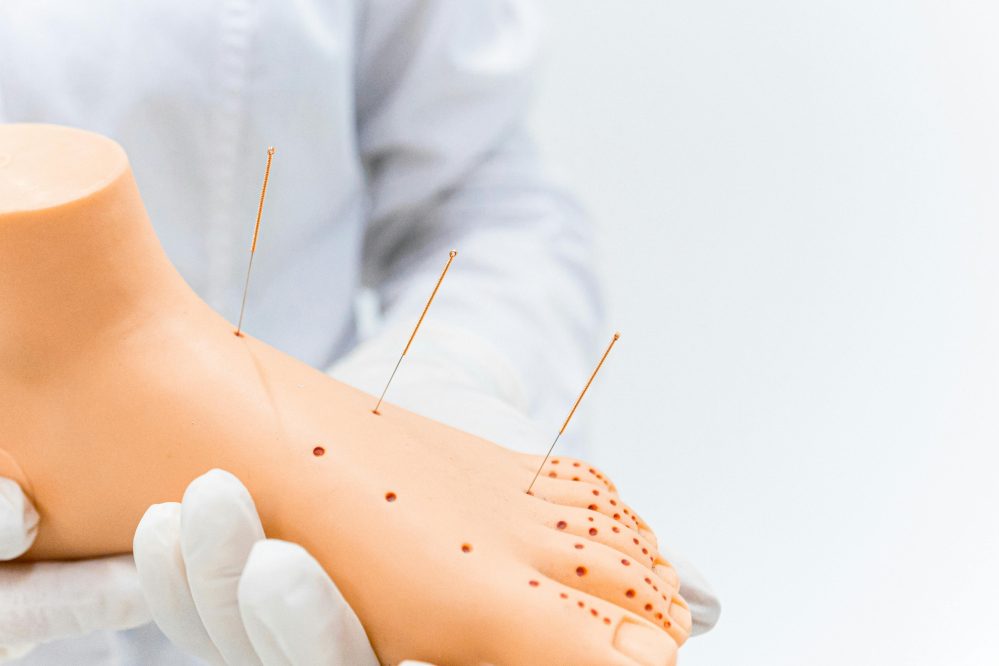Acupuncture is emerging as a popular alternative treatment for plantar fasciitis, offering potential relief from the chronic heel pain associated with this condition.
Acupuncture is gaining popularity as an alternative therapy for plantar fasciitis, a painful condition affecting the heel and foot. While traditional treatments like physical therapy and orthotics are commonly recommended, acupuncture has gained attention as an alternative approach.
In this article, we will explore the benefits of acupuncture for plantar fasciitis, including its effects on inflammation, circulation, and overall foot health. Additionally, we will discuss what patients can expect during their acupuncture sessions, providing a clear understanding of this holistic pain management method.
What Is Acupuncture?
Acupuncture, an ancient practice from traditional Chinese medicine, involves the insertion of fine, sterile needles into specific points throughout the body. According to the theory behind acupuncture, these points are located along pathways known as meridians, through which the body’s vital energy, or Qi (pronounced “chee”), flows.
Acupuncture stimulates these points to balance the body’s energy flow and enhance overall health and well-being. This ancient practice is widely recognized for its effectiveness in pain relief and is used to treat various health conditions, ranging from chronic pain and migraines to stress and digestive disorders.
What Is Plantar Fasciitis?
Plantar fasciitis is a prevalent and often painful condition caused by inflammation of the plantar fascia, a strong band of connective tissue that stretches from the heel to the toes and provides support to the arch of the foot.
The inflammation of this ligament results in sharp, stabbing pain in the heel, particularly noticeable with the first steps in the morning or after periods of prolonged rest or inactivity. This discomfort is typically due to the micro-tears and stress placed on the fascia, which can cause significant pain during initial movement.
As the day progresses, the pain may diminish somewhat, but it often returns with extended periods of standing or walking. The intensity of this pain can be incapacitating, affecting daily activities and overall mobility, making even routine tasks such as walking or standing uncomfortable.
Without treatment, plantar fasciitis can develop into chronic pain, potentially causing additional complications and reducing physical activity, which in turn can significantly affect quality of life. Timely diagnosis and intervention are essential for managing symptoms and preserving an active, healthy lifestyle.
Causes of plantar fasciitis

Plantar fasciitis typically arises from overuse or repetitive strain on the plantar fascia (the thick band of connective tissue supporting the arch). This condition is often triggered by high-impact activities, such as running, jumping, or extended periods of standing, which exert excessive stress on both the heel and the arch of the foot.
Inappropriate footwear, especially those lacking adequate arch support or cushioning, can exacerbate the problem by failing to absorb shock and provide necessary support. An abrupt increase in physical activity, whether by picking up a new exercise routine or intensifying an existing one, can place excessive stress on the plantar fascia, thus leading to inflammation and pain.
Additionally, anatomical issues like flat feet or high arches can heighten the risk of plantar fasciitis. Flat feet may cause the foot to roll inward excessively, while high arches can create an uneven distribution of weight, both of which place extra strain on the plantar fascia.
Can Acupuncture Be Effective in Treating Plantar Fasciitis?
Scientific research indicates that acupuncture can be an effective treatment for plantar fasciitis, offering promising results in managing this condition. In a randomized controlled trial with six months of follow-up, the results demonstrate that acupuncture can significantly reduce pain associated with plantar fasciitis.
This treatment targets specific points along the body’s meridians to stimulate blood flow to the affected area, facilitating healing and reducing inflammation. Enhanced circulation boosts nutrient delivery and waste removal, supporting recovery.
While further research is needed to fully explore its benefits, the current evidence suggests that acupuncture can be a valuable component of a comprehensive treatment plan for managing plantar fasciitis.
Benefits of Acupuncture for Plantar Fasciitis
Acupuncture provides several significant benefits for those dealing with plantar fasciitis. One of the most notable advantages is its ability to offer pain relief. By targeting specific acupuncture points, this treatment helps stimulate the body’s natural painkillers, endorphins, which can effectively reduce both acute and chronic heel pain.
Another key benefit is the enhancement of blood circulation; acupuncture promotes better blood flow to the affected area, which supports the healing process and reduces inflammation. This improved circulation will help in reducing pain while also contributing to increased flexibility and a greater range of motion in the foot, resulting in more comfortable movement and diminished discomfort.
Furthermore, acupuncture presents minimal side effects compared to conventional medications or invasive procedures, making it a safer and more appealing option for many. Beyond these physical improvements, acupuncture offers holistic benefits, such as stress reduction and overall well-being, which can help mitigate the psychological burden of chronic pain.
These combined benefits make acupuncture a promising and comprehensive approach to managing and alleviating the symptoms of plantar fasciitis.
What to Expect During an Acupuncture Session for Plantar Fasciitis

During your first acupuncture session for plantar fasciitis, you will begin with an in-depth consultation and assessment. The acupuncturist will ask detailed questions about your symptoms, medical history, and lifestyle and may perform a physical examination to pinpoint the exact nature of your condition. This initial evaluation helps tailor the treatment to your specific needs.
The acupuncture procedure involves gently inserting very fine, sterile needles into precise points on the foot and possibly other body areas, depending on your overall health and the acupuncturist’s approach. Each session typically lasts 30 to 60 minutes, during which you may experience sensations such as a mild tingling, a gentle warmth, or a dull ache at the needle sites. These sensations are generally brief and are often considered a sign that the treatment is working.
After the acupuncture session, the acupuncturist may provide post-session care guidance, including recommendations for rest, stretching exercises, or adjustments to your daily routine to support the healing process. You may also receive advice on maintaining good foot health and managing activity levels to prevent future flare-ups. Overall, the session aims to enhance your comfort and support your recovery from plantar fasciitis.
How many acupuncture sessions are needed for plantar fasciitis?

The number of acupuncture sessions needed to effectively address plantar fasciitis can differ significantly based on the condition’s severity and the individual’s response to treatment. Generally, a treatment plan involves multiple sessions, usually between 6 and 12, with appointments scheduled once or twice a week.
While some patients may experience improvement after only a few sessions, others may need a longer series of treatments to achieve meaningful relief. The total number of sessions will be determined by your response to acupuncture and your acupuncturist’s specific recommendations.
It is crucial to follow your acupuncturist’s recommendations closely for optimal results, as consistent treatment and adherence to their guidance can significantly enhance the effectiveness of the therapy and support your recovery from plantar fasciitis.
Wrapping Up
Acupuncture offers significant benefits for managing plantar fasciitis, including pain relief and improved flexibility. Consult a healthcare professional or licensed acupuncturist to determine if this treatment is right for you. Combine acupuncture with physical therapy, proper footwear, and lifestyle changes for a comprehensive approach.
To explore a career in acupuncture, consider AIAM’s entry-level master’s program and take the first step toward becoming a licensed acupuncturist.
Frequently Asked Questions (FAQs)
Does acupuncture for plantar fasciitis provide immediate relief?
Acupuncture may provide immediate relief, but significant improvement typically occurs after several sessions.
How long does plantar fasciitis take to heal?
Plantar fasciitis generally takes 6 to 12 weeks to heal with appropriate treatment, though recovery time can vary.
How can plantar fasciitis be prevented?
To prevent plantar fasciitis, wear supportive footwear, avoid sudden increases in physical activity, and maintain a healthy weight.